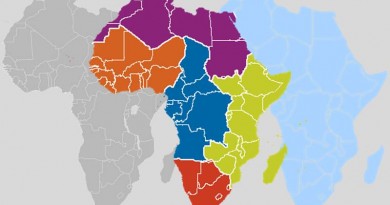WhatsApp, Threads, Telegram and Signal removed from Apple’s App Store in China
Apple has taken down the Meta-owned end-to-end encrypted messaging app WhatsApp from its App Store in China due to national security concerns, as reported by Reuters on Friday. Meta’s newer text-based social networking app, Threads, has also been removed from the App Store in China for the same reason.
In a statement to the news agency, Apple mentioned that the Cyberspace Administration of China ordered the removal of these apps from the China storefront citing national security concerns. Meta confirmed that both apps are no longer available on Apple’s App Store in China but did not provide further details on the takedowns. A Meta spokesperson directed inquiries to Apple for comments.
We contacted Apple for clarification on the removals, but as of now, there has been no response from the company. According to Reuters, two other messaging apps, Signal and Telegram, have also been removed from Apple’s App Store in China. This information is based on data from app tracking firms Qimai and AppMagic.
While Apple has not officially confirmed the removal of Signal and Telegram, the AppleCensorship site, which monitors App Store removals, lists both apps as “disappeared” from Apple’s mainland China App Store. We attempted to reach out to Telegram regarding the status of its iOS App, but there has been no response at this time.
In response to Reuters’ report, Signal’s president Meredith Whittaker informed TechCrunch that Signal was already blocked in China by the country’s Great Firewall. She mentioned that even though Signal may have been downloadable in the past, registrations and messages on the app are blocked in China. Therefore, the absence of the app on the App Store would not impact users in China who are unable to register or send messages through the platform.
Signal’s accessibility in China has not always been hindered in the same manner. In 2021, TechCrunch’s Rita Liao reported that Signal functioned flawlessly in China, even without the need for a VPN. However, it appears that state censors have since intensified their efforts to restrict the use of this end-to-end encrypted messaging app.
This is not the first instance of Apple removing apps based on the directives of China’s internet regulator. Last year, prior to the implementation of Chinese regulations targeting generative AI, several generative AI apps were removed from Apple’s China App Store. Similarly, Damus, a Twitter alternative backed by Jack Dorsey, was also pulled from the store shortly after receiving approval.
A few years ago, the audio social networking app Clubhouse faced a similar fate, being removed from Apple’s store in China shortly after its global release. Over the years, Apple has also eliminated various other apps, including censorship circumvention tools, VPN apps, RSS apps, podcast apps, and even a Quran app.
The reasons behind the recent removal of WhatsApp and Threads from Apple’s Chinese App Store remain unclear. While WhatsApp is an end-to-end encrypted messaging app, Threads is a microblogging-style social media app. Telegram, on the other hand, offers both private messaging and one-to-many broadcast features, with proprietary end-to-end encryption available only for “secret chats.” Signal, on the other hand, provides industry-leading end-to-end encryption across all aspects of its app.
Threads was launched in early July last year but has been blocked by China’s Great Firewall. Consequently, users in China who wish to download the app must utilize a VPN to bypass the censorship. Despite this obstacle, Threads managed to quickly climb to the top 5 on Apple’s China App Store last summer, indicating its popularity among Chinese users.
It is likely that a popular app would attract more attention from China’s state censors, potentially prompting them to take further measures to restrict its usage. This could include instructing Apple to remove the software from their platform.
Other widely-used apps owned by Meta, such as Facebook and Instagram, continue to be accessible on Apple’s China App Store, according to AppleCensorship. However, as highlighted by TC’s Liao in a 2021 article discussing the increasing popularity of Signal and Telegram, “China’s censorship policies may seem capricious and unpredictable.” SOURCE: Techcrunch by Natasha Lomas




